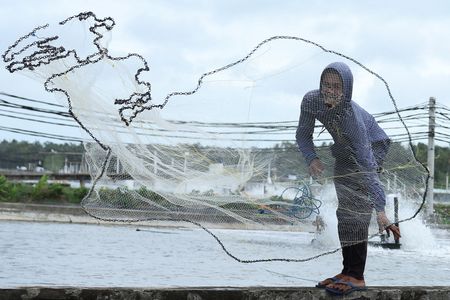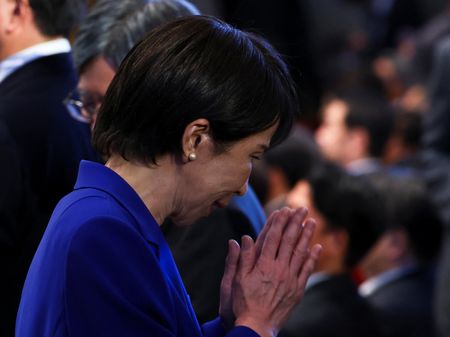By Patricia Zengerle and David Brunnstrom
WASHINGTON (Reuters) -The chairman of the U.S. Senate Foreign Relations Committee said on Friday he will introduce legislation to deter aggression against Taiwan by identifying targets for economic measures that could be deployed rapidly if China acts against the island.
Republican Senator Jim Risch of Idaho said his “Deter PRC Aggression Against Taiwan Act” would create a State and Treasury Department-led task force that would identify Chinese military and non-military targets for sanctions, export controls and other economic measures to use against Beijing in case of Chinese aggression against Taiwan.
“Using lessons learned from the challenges in U.S. and partner country sanctions against Russia following its invasion of Ukraine, this legislation will ensure America is prepared to hit China where it hurts should China follow through on its threats to use violent force against Taiwan,” Risch said in a statement.
An aide said he planned to introduce the measure on Monday.
The Chinese foreign ministry, in a statement in response to Reuters questions, said the United States should strictly abide by the one-China principle – under which China claims the democratically governed Taiwan as its own – and stop undermining bilateral relations and stability across the Taiwan Strait.
“The Taiwan issue is China’s internal affair,” the ministry said. “How to resolve it is solely China’s own business and does not tolerate any external interference.”
News of the proposed bill comes ahead of an expected meeting this month between U.S. President Donald Trump and his Chinese counterpart Xi Jinping, with the U.S. leader seeking to conclude a major trade deal with Washington’s biggest economic and geopolitical rival.
China has never renounced the use of force to bring the island under its control. Beijing has stepped up military and political pressure against Taiwan in recent years.
The U.S. is Taipei’s main foreign backer and some foreign policy experts and people in Taiwan are concerned that Trump may not be as committed to defense of the Chinese-claimed island as past U.S. presidents and might be willing to offer Beijing concessions to secure a significant trade deal.
The U.S. State Department says the U.S. position on Taiwan has not changed and that Washington opposes any unilateral changes to the status quo from either side.
Analysts say China would particularly like the Trump administration to state explicitly that it opposes Taiwan’s independence rather than say, as did the Biden administration, that it did not support it.
Risch’s bill is one of several legislative initiatives in the Senate and House of Representatives that supporters say underscore support in Congress for continuing to take a hard line against any Chinese moves on Taiwan.
(Reporting by Patricia Zengerle and David Brunnstrom; Additional reporting by Ryan Woo in Beijing; Editing by Daniel Wallis)










